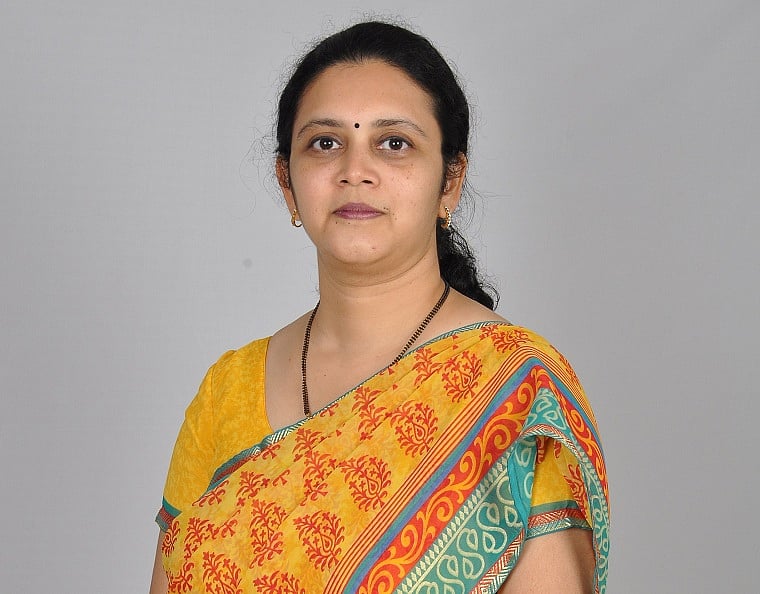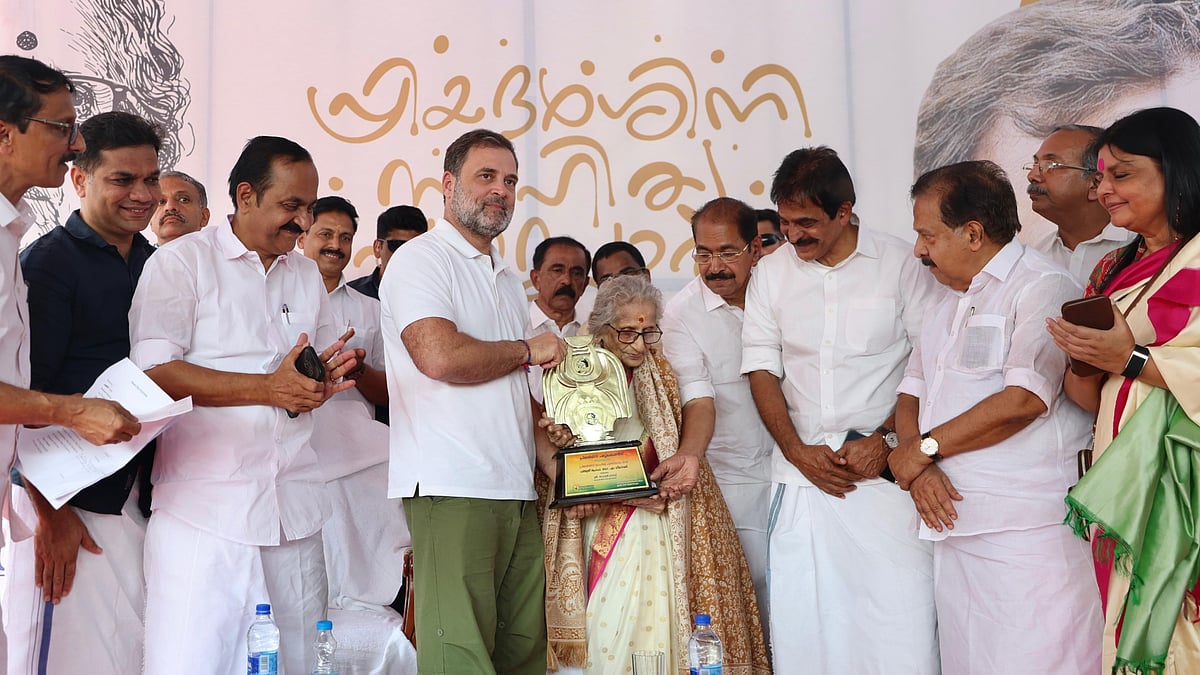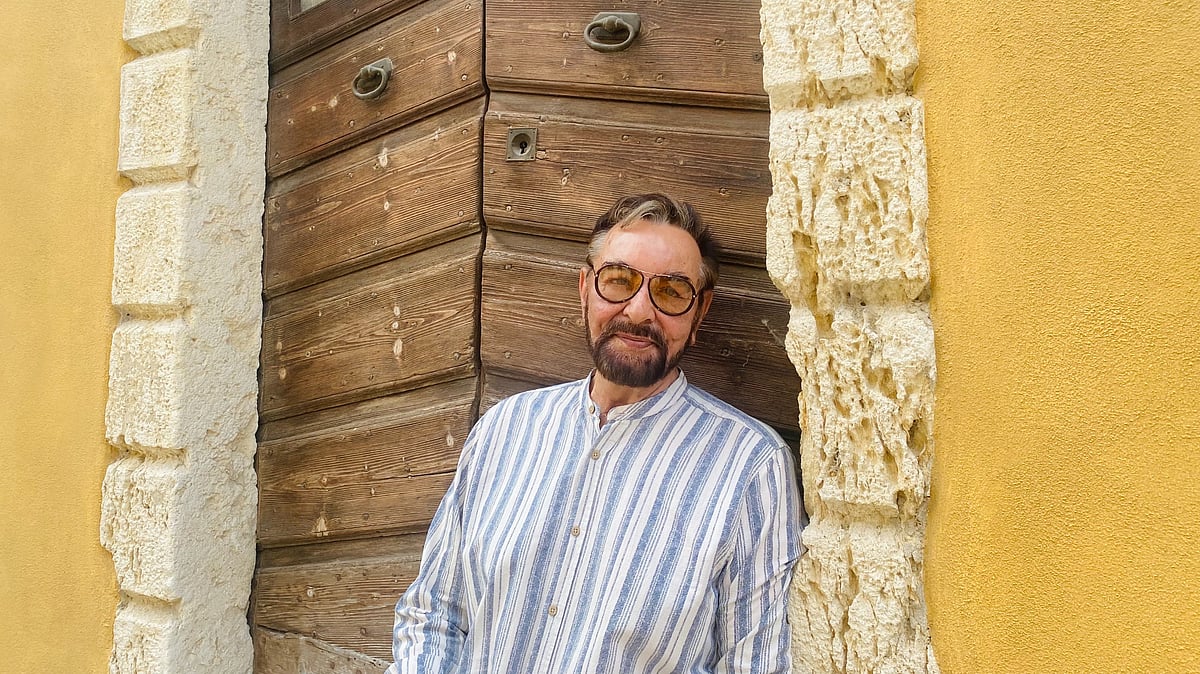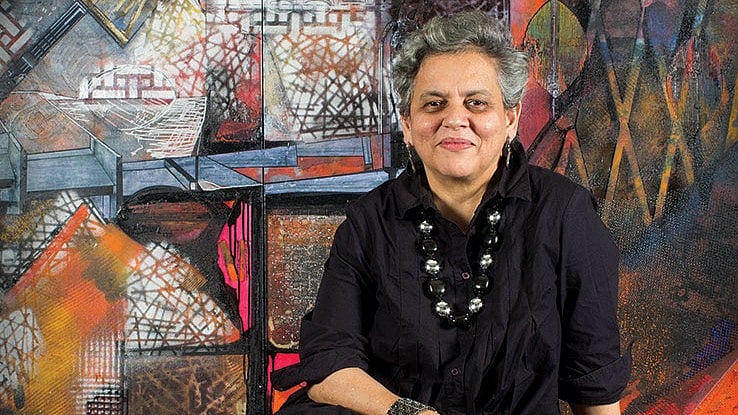Earlier this month, TV stars Kishwer Merchant and Suyyash Rai announced that they are expecting their first baby. The good news bodes well for many other women who have rewired their biological clock and are willing to embrace motherhood well past their 40th.
Mumbai-based screenwriter Alaukika Dash was in her mid-thirties when she decided to tie the knot. She happily fiddled with the idea of giving motherhood a miss till she was about 40. But she gave in finally to the maternal urge. Dash conceived just days after her 41st birthday and rang in her 42nd with her twins — Advait and Adaa — born in November 2020.
Taking the plunge
"It wasn't an easy decision to take the plunge. I knew age wasn't on my side, but after meeting Dr Aniruddh Malpani, I knew that it would be difficult, but certainly not impossible," reminisces Dash, caressing her four-month-old twins. What set the ball rolling for Dash was her elder sister's experience, who happened to conceive naturally at 42 and made her realise that one's biological age may or may not be the same as one's reproductive age. "I had been relying heavily on the Internet, and unfortunately, the search results were discouraging. I stumbled upon the right person, Dr Malpani, who guided me through the process and helped me become a mother, and I can't thank him enough," she recounts and advises moms-to-be from indulging in cyber consultation. "There will be no net gain," she chuckles.
For New Delhi-based Jaspreet Chandhok, an architect by education and the partner of one of India’s leading lighting design firms, Ethereal Designs, motherhood was on her radar, but adoption is her first choice. She got married at 35 and conceived at 36. The first trimester was tough for her. "I had frequent nausea, severe acidity, lethargy, throwing up at any strong smell or taste to the extent I couldn't even brush my teeth daily for fear of vomiting. As the first trimester completed, I suffered a miscarriage. It was traumatic. The idea repulsed us, and we were afraid of going through the same rigmarole again. To add to it, my husband was facing a challenging medical situation too," reminisces Chandhok. At 40, she wanted to be a mother badly, but chose to give the biological route a miss. "Adoption seemed to be the most promising and empowering means of bringing a child into our lives. We registered in the Central Adoption Resource Authority in August 2020. Currently, we are 1275th on the waiting list of prospective adoptive parents, which could mean another 15 months of waiting time," adds Chandhok.
Medically sound
Dash is one among those many women, who are past their so-called fertile years but are embracing motherhood with aplomb. Thanks to advancements in technology surrounding fertility, pregnancy, and delivery, it's possible to have a baby at 40 and safely. Dr Monica Sachdeva, Medical Director & Senior IVF Consultant, PRAVI IVF & Fertility Centre, in Kanpur, says, "Every woman has a right to embrace motherhood. So what she is above 40? We worry about motherhood at and after 40 because the conception rate is low, chances of miscarriages and genetically abnormal babies are higher, medical complications such as diabetes and hypertension during pregnancy and social and financial burden of elderly motherhood. But with the advancement of science and Assisted Reproductive Techniques, motherhood has become easier even at an advanced age." Sachdeva cites how a woman chose to become a mother at 48 that too after her menopause.

"The woman had an adorable son and a caring daughter-in-law. She lost her only child in a tragic mishap. The daughter-in-law left them. The childless couple came with questions in their mind about parenthood at this age. A thorough medical evaluation gave the would-be mom a clean chit. She conceived and gave birth to twins two years ago," adds Sachdeva.
Rare no more
More often than not, the fear of the biological clock ticking away makes a woman hastily choose pregnancy. Dr Divya Agarwal, Consultant, Foetal Medicine & Medical Genetics, Max Hospital, Gurugram, and Advisor, Life Cell Labs, says, "A woman above 40 in the antenatal outpatient department is not stared upon now. I frequently see women who have put their aspirations and career at the forefront and voluntarily delayed marriage and childbirth. Women of advanced age frequent my OPD for the assessment and counselling for risk of genetic abnormalities in their baby because of age. Around 1 in 10 women who visit me are above 38 years."
However, any pregnancy after 40 is considered high risk. But the trend for those who are opting for conception after 40 is encouraging. As Dr Sonal Kumta, Senior Consultant-Obstetrician & Gynaecologist, Fortis Hospital, Mulund, explains that the average age of pregnant women who come to her for consultation falls between 32 to 35 years while about 20% of pregnant females belong to the age group of near and above the 40s.
"Typically, this group is classified as elderly Gravida (gravida means pregnant women) and elderly Primigravida (if the female is pregnant for the first time beyond 35 years). They fall under the group of high-risk pregnancies. The complications commonly found are pregnancy-induced hypertension, gestational diabetes, and thyroid in pregnancy. We may also see foetal growth problems such as Intrauterine Growth Restriction, low birth weight, and pre-term birth. We have observed a higher incidence of foetal and genetic complications in advancing maternal age," says Kumta.
Agarwal couldn't agree more with her, as she adds, "Scientifically and biologically advanced age of mother and father has been found to be associated with increased risk of genetic abnormalities in their germ cells, egg and sperm, thereby leading to increased risk of fetal genetic abnormalities after conception."
Checked, right?
Sachdeva does a thorough medical evaluation before initiating treatment of women above 40. "Preimplantation genetic screening has made it possible to implant genetically normal embryos and reduce the miscarriage rate. Early prenatal diagnostic faculties are available to detect structural and genetic abnormalities."
Here it is pertinent to mention that any conception, even in a 20-year-old, theoretically is prone to genetic errors during the formation of gametes or fertilisation as these are processes of active genetic replication and recombinations. However, the probability of these errors increases with the mother's advancing age and minimally with advanced paternal age. As Agarwal adds, "The chances of having a chromosomal genetic abnormality like Down's syndrome is about 1 in 1000 at maternal age of 25 years, increases to 1 in 350 at 35 years and 1 in 100 at more than 40 years. So, most of the women above 40 will have normal pregnancies, only about 2-3 per cent will have the risk of chromosomal genetic issues. Our chromosomes are our permanent imprint and hence any errors are permanent and non-treatable." There are simple blood tests now, which can be done during the early months of pregnancy and can detect these age-related chromosomal abnormalities in the foetus."
Every woman has a right to embrace motherhood. So what she is above 40? We worry about motherhood at and after 40 because the conception rate is low, chances of miscarriages and genetically abnormal babies are higher, medical complications such as diabetes and hypertension during pregnancy and social and financial burden of elderly motherhood. But with the advancement of science and Assisted Reproductive Techniques, motherhood has become easier even at an advanced age.
Dr Monica Sachdeva, Medical Director & Senior IVF Consultant, PRAVI IVF & Fertility Centre, in Kanpur
Kumta explains that if the pregnancy is carefully monitored and all the necessary precautions are taken like following good dietary practice, taking medication on time, regular exercise, less/no stress, focusing on their pregnancy, a lot of issues can be resolved.
"And of course, a very close follow-up with the consultant; wisely monitoring the pregnancy so that if any high-risk issues come up, they can be addressed immediately and effectively by the health provider," she adds.
Tech that
Using the technological advancements to one's advantage can come in handy for a woman above 40 planning to become a mother. There's nothing right or wrong about embracing motherhood at 40 plus years, it is all about what works for a woman individually. There cannot be any rigid guidelines. "If a woman is socially, financially, health-wise, work-wise settled, and stable, then I would urge her to plan conception before 35. However, if she is unable to plan a pregnancy or wants to delay it for any reason, it might be wise to freeze the eggs and plan conception whenever she feels confident and comfortable about her life and her body. She should feel in control of her emotions, wholeheartedly accept the pregnancy and prioritize the child once it is born," explains Kumta. And highlighting the brighter side of elderly motherhood, Chandhok adds, "As would-be parents, we are financially better prepared to welcome our baby. Age is just a number. Go for it, only when you are ready."
Dr Monica Sachdeva, Medical Director & Senior IVF Consultant, PRAVI IVF & Fertility Centre, Kanpur

"Firstly, oocyte freezing is a blessing for those women who choose to build their careers and delay motherhood. Secondly, novel IVF stimulation protocols to utilise the maximum number of eggs and, thirdly, preimplantation genetic screening to transfer genetically healthy embryos are making it easier for a woman to choose motherhood after 40."
Jaspreet Chandhok, partner, Ethereal Designs, New Delhi

"Yes, the child that we will bring home won't have our bloodline, our looks or our genes but we are not running a kingdom anyway; there is no royal blood legacy we are aware of that we must take forward through our progeny. Our love is our legacy. Eagerly looking forward to our child, who shall belong to our own 'loveline' not 'bloodline'."
Dr Divya Agarwal, Consultant, Foetal Medicine & Medical Genetics, Max Hospital, Gurugram, and Advisor, Life Cell Labs

"Freezing eggs for later pregnancies by artificial reproductive techniques like IVF is an option for women who want to consciously delay pregnancies. However, they should also be aware that the success rate of IVF even in specialised centres is usually not more than 40-50% and it needs very precise monitoring and might need multiple attempts before success."
Dr Sonal Kumta, Senior Consultant-Obstetrician & Gynaecologist, Fortis Hospital, Mulund

"If a woman is socially, financially, health-wise, work-wise settled, and stable, then I would urge her to plan conception before 35. However, if she is unable to plan a pregnancy or wants to delay it for any reason, it might be wise to freeze the eggs and plan conception whenever she feels confident and comfortable about her life and her body."














